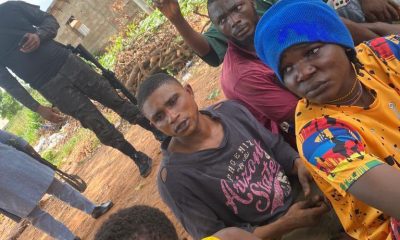Comments and Issues
Understanding the secessionist surge


 Business1 week ago
Business1 week agoDollar crashes further against Naira at parallel market

 Football24 hours ago
Football24 hours agoGuardiola advised to take further action against De Bruyne and Haaland after both players ‘abandoned’ crucial game

 Business7 days ago
Business7 days agoRecapitalisation: Zenith Bank to raise funds in international capital market

 Education7 days ago
Education7 days agoArmy reveals date for COAS 2024 first quarter conference

 Crime1 week ago
Crime1 week agoFleeing driver injures two on Lagos-Badagry expressway

 Covid-197 days ago
Covid-197 days agoBritish legislator demands Bill Gates, other ‘COVID Cabal’ faces death penalty

 Business1 week ago
Business1 week agoZenith Bank surpasses N2trn earnings milestone

 Latest5 days ago
Latest5 days agoIsrael pounds Hezbollah with airstrikes after Iran attack














A rather capacious interpretation of the right to statehood, along with various political and economic forces, is now destabilizing many regions of the world. In just the past few weeks, the regional governments of Catalonia in Spain and Kurdistan in Iraq have held unofficial independence referendums. And in Cameroon, separatist groups in the English-speaking region of Ambazonia have unilaterally declared independence from the country’s French-speaking regions.
ALSO SEE: Biafra: IPOB members embarrass Buhari at UN General Assembly in US
Meanwhile, Scotland has been weighing whether to hold another independence referendum, so that it can remain in the European Union after the United Kingdom’s withdrawal from the bloc. And dozens of other regions with powerful secessionist forces – including Flanders in Belgium, Biafra in Nigeria, and Québec in Canada – are watching events closely from the sidelines.
National self-determination was a driving force of twentieth-century geopolitics, underpinning the creation of many new countries after the two world wars, and again after the collapse of the Soviet Union. When the United Nations was founded in 1945, it had just 51 member states; today, it has 193. But the road to independence is usually bloody, violent, and long, as Africa’s experience with civil war and ethnic conflict shows. The peaceful breakup of Czechoslovakia in 1993, and of Norway and Sweden in 1905, were the exceptions to the rule.